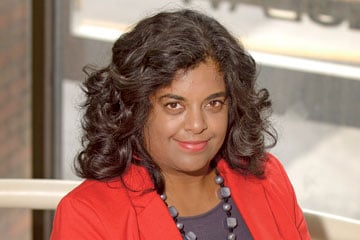
There was a 50-per-cent uptick in the first half of 2018 in the total number of new individuals who contacted the Discrimination and Harassment Counsel for the Law Society of Ontario, according to a report released by the law society’s Equity and Indigenous Affairs Committee.

There was a 50-per-cent uptick in the first half of 2018 in the total number of new individuals who contacted the Discrimination and Harassment Counsel for the Law Society of Ontario, according to a report released by the law society’s Equity and Indigenous Affairs Committee.
The report shows that 125 individuals — or about 21 per month — reached out to the DHC for a new matter, a leap from about 14 per month in the last six months of 2017. Behaviour that is described in the report includes discriminatory advertising for articling positions, persistent sexualized and predatory texting, verbal or physical threats, clients being mocked by opposing counsel due to a disability, and demanding sex in exchange for legal services, among others.
Jennifer Gold, a family lawyer and founding partner of a boutique firm that serves the Region of Peel, says the report is a wake-up call for the profession.
“Unfortunately, it wasn’t surprising,” says Gold, who is vice president of the Women’s Law Association of Ontario. “I think we all know that these things are happening and finally they are coming to light.”
Racial discrimination was the most common grounds of complaint amid legal professionals, followed by sexual harassment, sex, and disability, with most complainants raising more than one issue, the report said. Sexual harassment was the most common complaint among members of the public, followed by disability discrimination complaints.
Of the 125 new contacts — excluding those calling about existing issues — 46 were “substantive concerns about discrimination and/or harassment by licensees that fall within the mandate of the DHC program,” including 11 by members of the public and 34 by members of the legal profession, the report said.
Of those 46 complaints within the DHC mandate, 24 were made by lawyers, seven were made by students and three were made by paralegals. Eighty per cent of the claims made by members of the legal profession were made by women, “more than half of whom voluntarily self-identified as racialized women and/or women with disabilities.” Of the six men that complained within the legal profession, five identified as being racialized, gay, of a minority religion or as a man with a disability, the report said.
The DHC provides free, confidential services to those with concerns or complaints about discrimination or harassment that violates the Ontario Human Rights Code and is committed by lawyers or paralegals licensed in Ontario or by students in the Ontario licensing process, the report said.
While the DHC is funded by the law society, the operations are completely independent and the data provided to the law society is completely anonymized, and there is no way to know which complaints proceed to civil or criminal actions or law society tribunal cases, says Lai-King Hum, one of the lawyers that works on the DHC.
The counsel doesn’t provide legal services, but it does suggest other remedies.
Gold recalled attending an International Women’s Day event in March 2018, when a panel discussed whether the #MeToo movement would affect lawyers.
Hum, who spoke on the panel on March 13 at Osgoode Hall, says complaints spiked after the talk, which had about 300 people in attendance and more watching online.
Advertisements in ORs and emails from the law society have also raised the visibility of the DHC’s resources, she says.
“What was missing was the ability to cite data to say, ‘There is a problem.’ To date, there was anecdotal evidence,” Hum says. “I don’t think people know that there is an issue in the profession.”
Dianne Corbiere, managing partner of Nahwegahbow Corbiere Genoodmagejig Barristers & Solicitors, chairs the LSO’s Equity and Indigenous Affairs Committee, which presented the DHC statistics to law society members.
“I want to make sure that we continue to take this issue seriously and do what we can, change where we can and improve where we can,” Corbiere says.
Erin Durant, who practises insurance defence litigation and labour and employment law as a senior associate at Borden Ladner Gervais LLP in Ottawa, says that having more diversity among law firm leadership, as well as more diversity and inclusion training, may also have emboldened people to reach out to the DHC.
“I have been confused as an assistant, a court reporter and a law clerk before,” Durant says.
“I have never experienced discrimination from a colleague, in any firm that I’ve been at. More often when I have seen gender stereotypes applied, it has been from actors outside the law: clients, court staff, sometimes legal assistants and often in jurisdictions where there may not be as many women lawyers.”